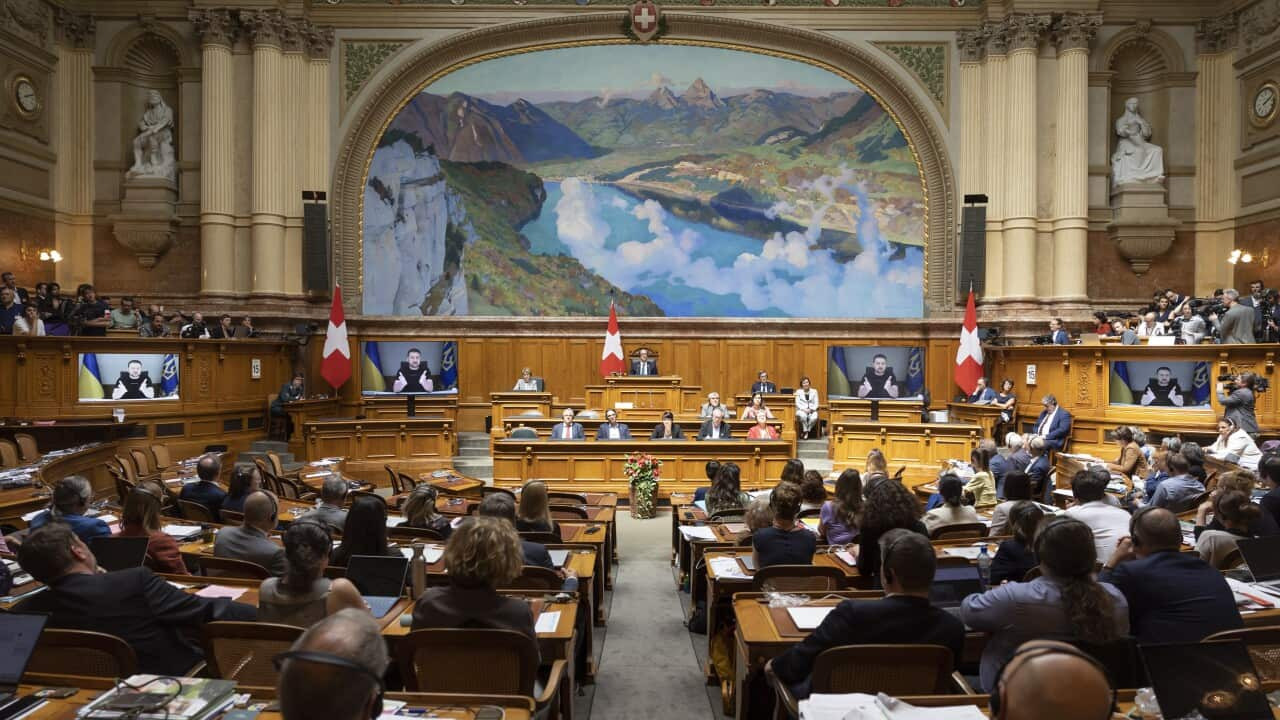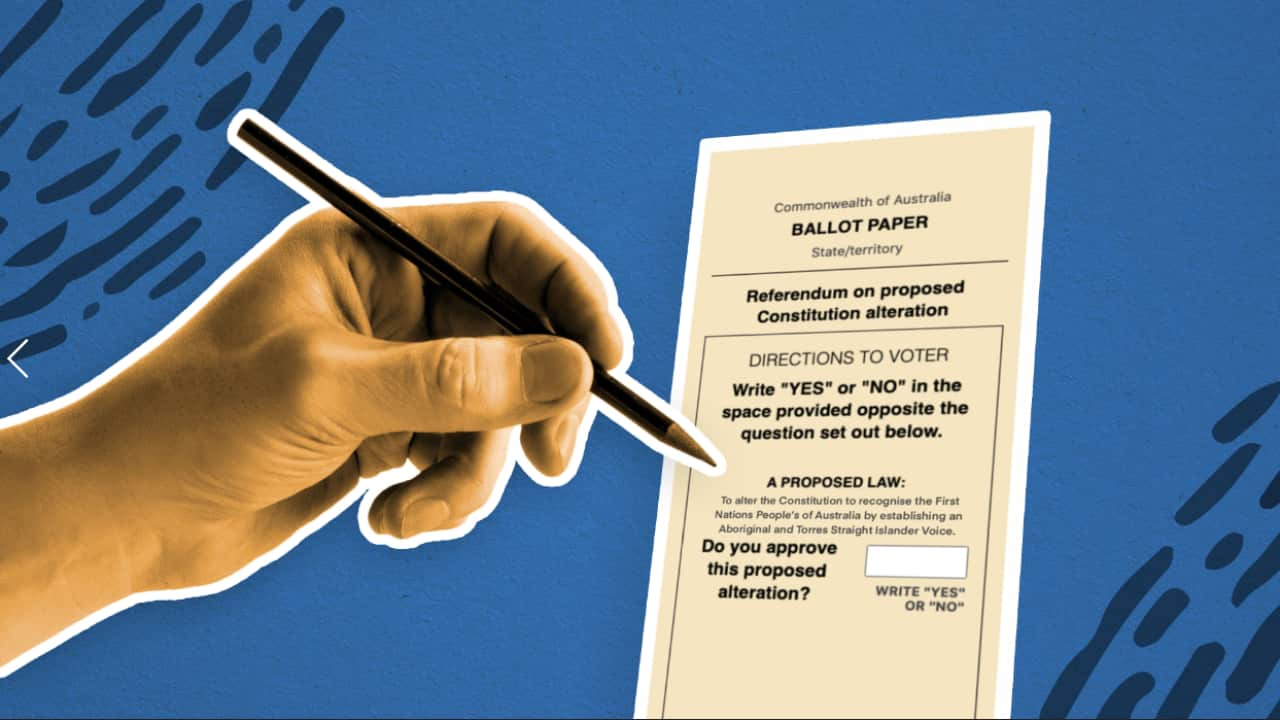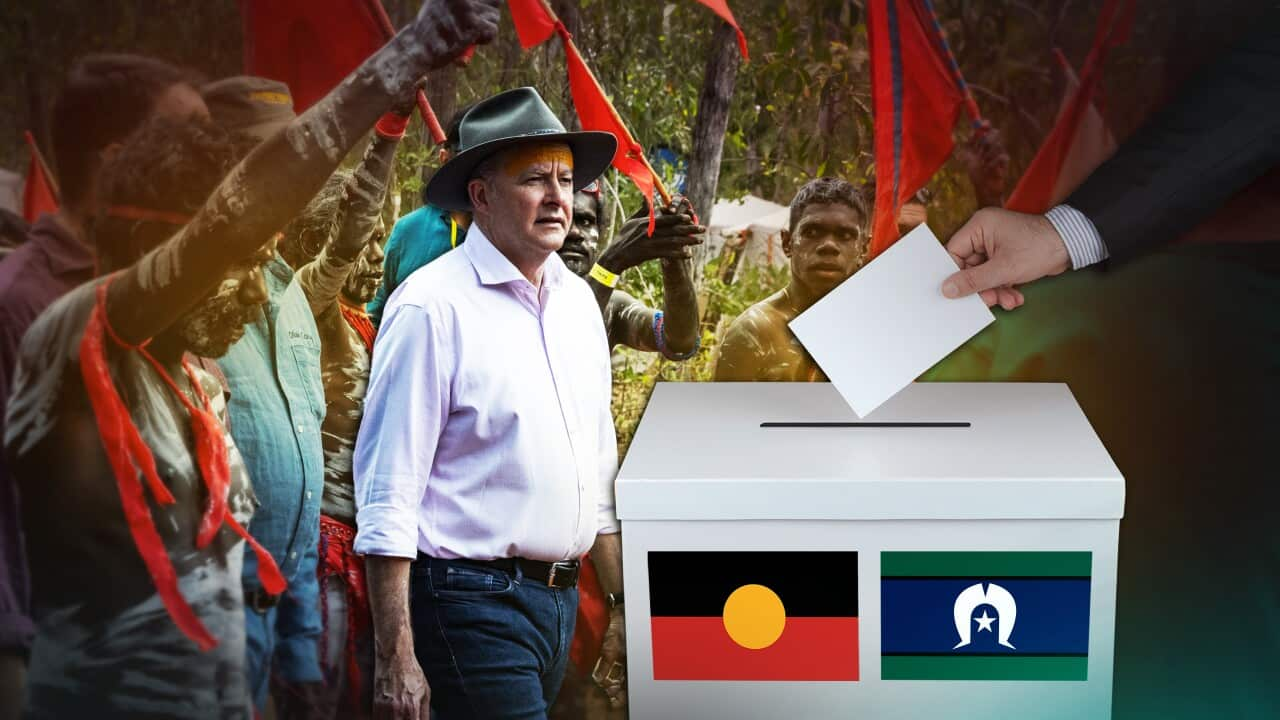Key Points
- Switzerland had 11 referendums in 2022.
- Voter turnout averages around 50 per cent.
- Referendums symbolise direct democracy which is very popular among the Swiss, experts say.
As Australians prepare to vote in their first referendum in a generation, there is a lot they can learn from Switzerland, where 11 referendums were held in 2022.
In the 20th century, nearly 50 per cent of referendums conducted anywhere in the world were in this European country, which has asked its people to vote on issues from raising taxes to restricting gun control, to banning experiments on animals.
Referendums symbolise the concept of direct democracy and are a proud part of the country's DNA, assistant professor of political studies at the University of Lausanne Sean Mueller told SBS News.
"You find some actors in the centre of the political spectrum, that say it's too easy to challenge the Parliament," and that the threshold for triggering a referendum should be higher.
But overall direct democracy is "very, very popular" in Switzerland, and is even part of Swiss nationalism, he said.
"Because we don't have one language, we don't have one religion, so what keeps the Swiss together is in fact, the rights and the exercise of these political rights.
"Finding a politician that stands up and says I want to limit the extent of direct democracy is very hard, because he or she will be very unpopular by saying that, so it's not going to change."

Posters for a No vote on the climate change bill during a June 2023 referendum in Bern, Switzerland. Source: AAP / Peter Klaunzer
How do referendums work in Switzerland?
Referendums are held four times a year with multiple on the same day, and there are three different kinds that the Swiss might participate in.
The Swiss Federation state, or the Switzerland that we know now, was established in 1848 and in the beginning, the only thing that was required was that future constitutional changes should be subject to a popular vote.
This type of mandatory referendum takes place every time the government and parliament want to amend the Constitution, and it must receive a double majority to pass, like the Australian Voice to Parliament referendum.
"Then there is an optional referendum, for every federal law voted on by the Swiss parliament," Pascal Sciarini, professor of social sciences at the University of Geneva, told SBS News.
"If committee parties or interest groups don't agree with the law, they can launch a referendum to collect signatures, and if it is able to collect 50,000 signatures in 100 days, then the final word will be by the people."
The third institution is the so-called popular initiative, where a group can collect signatures and if it's able to collect 100,000 signatures in 18 months, it can ask for a change or amendment of the Constitution.
In Australia, a referendum can happen after parliament passes a bill containing the proposed change to the constitution.
There won't be any referendums held in Switzerland this year because of the federal elections taking place.
What is the turnout for referendums in Switzerland?
Unlike in Switzerland, so the turnout rate is an average of about 54 per cent.
There are strong variations across the votes, Sciarini said, with some issues attracting around 30 per cent and some going up to around 70 per cent.
Studies have shown that 10 per cent of the electorate never participate, 10 per cent always participate and 80 are sporadic voters depending on the issue.
Around 75 per cent of the time, people vote in favour of what the government is advocating for.
"Because we have frequent referendums, it's never the same 50 per cent (of people)," Mueller said.
"In March, maybe the issue was about cars, and in June, the issue was about energy or Europe," so the voters could be an entirely different group of people each time, he said.

Switzerland is famous for its beautiful landscapes, chocolate and direct democracy. Source: AAP / Bob Gibbons
How do people tend to vote in referendums around the world?
Professor Matt Qvortrup has written a book on referendums around the world.
"It used to be that about 70 per cent of them were passed down, and that's taking into account constitutional changes in undemocratic places like Cuba and Russia,"
Qvortrup said.
"But in the last decade, there has been a global trend downwards and only about 52 per cent have been passed."
Qvortrup said this could be due to people being less loyal to political parties than they used to be.
"Basically, it used to be the case that people would take cues from their political parties ... but now increasingly, referendums are being used for what they actually are made for. Which is allowing people to prefer one set of people to govern everyday life, and then to, to have their say on very important issues.
"So we can say it's almost a coming of age, that people actually are willing to stray away from some of their political parties."
Continual referendums can make people more responsible "because they're given more responsibility," he said.
"They will occasionally vote in a mature way, for example, voting for higher taxes if they and voting for higher spending."
But there is little evidence to suggest that there's sort of referendums that you have in Australia will automatically lead to more trust in government, Qvortrup said.
Stay informed on the 2023 Indigenous Voice to Parliament referendum from across the SBS Network, including First Nations perspectives through NITV.
Visit the to access articles, videos and podcasts in over 60 languages, or stream the latest news and analysis, docos and entertainment for free, at the .













